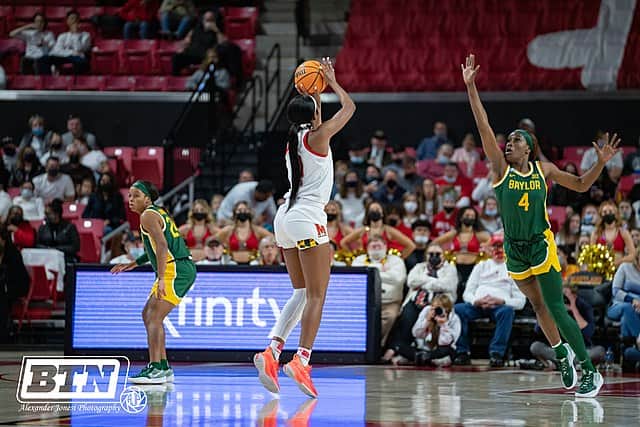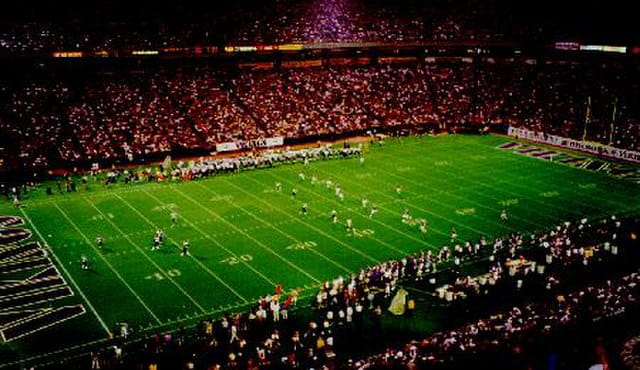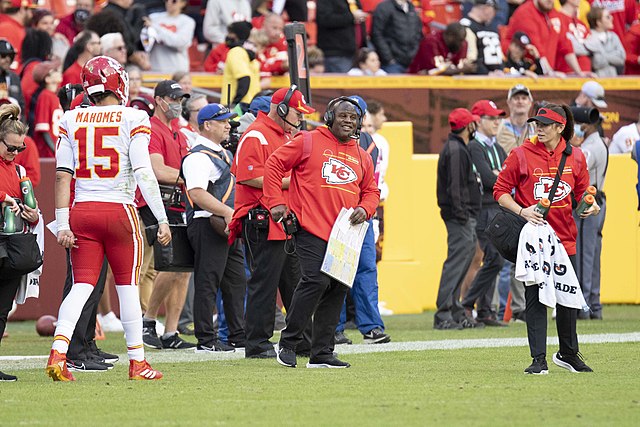The debate around the remuneration of college athletes has been around since the early days of the National Collegiate Athletic Association (NCAA). The organization was able to fend off those challenges by simply stating that it’s protecting the “amateurism” of college sports.
However, the conversation has now gathered momentum and with the amount of money that college sport generates, it’s becoming increasingly difficult for the NCAA to maintain its stand.
Become an insider. Subscribe to our newsletter for more top trending stories like this!
In this article, we attempt to answer the question, “Should college athletes be paid,” by looking at the reasons for and against it.
Join our Spotcovery Global Black Community Facebook Group for early access to exclusive content and to share in a lively discussion.
Why College Athletes Should Be Paid
So many arguments have been made supporting the compensation of student-athletes and if you look at the numbers we’ve shared above, you’ll understand why.
Financial Disparity
The NCAA and colleges generate a huge amount of money from student-athletes through advertisements and publicity. That said, the money that colleges get isn’t equally distributed in the sports. Basketball and football, disciplines which are largely played by black athletes, produce the highest returns.
Yet, the money they generate subsidizes sports like golf, soccer, baseball and tennis, which tend to be white, and have players who largely come from high-income homes. This means that black students don’t benefit much from the money they help to generate.
Get basketball on Amazon.
Exposure
The basketball tournament, dubbed March Madness provides colleges huge marketing opportunities. Out of the $1.3 billion revenue the NCAA made, $945.1 million came from media rights fees, which has proven to be one of its biggest cash earners. Additionally, reports show that colleges that sports-focused colleges tend to attract higher state funding and get more donations.
People Also Read: Illness Couldn’t Derail Bob Gibson’s Desire to Be the Best Baseball Pitcher
Risk
College athletes sacrifice a lot of opportunities to focus on being the best athletes in their school with the hope of turning professional. For example, their dedication to the team will mean that they forego job opportunities where they might have received compensation.
Additionally, competing at the college level impacts their academic studies because of the time and effort it takes and thus it will impact their chances of getting a job after graduation. Some players suffer career-ending injuries and others don’t get a professional team, so not getting remunerated for their time and effort leaves them at a disadvantage.
People Also Read: African Sport: 6 Global Sports Events Hosted in South Africa
Why College Athletes Shouldn’t Be Paid
Some people maintain that college athletes shouldn’t receive compensation from the NCAA or their schools.
Get school stationery on Amazon.
Financial Burden to Schools
Colleges compete for the best talents and as such to produce a winning team, they also recruit the best coaches in the country. Additionally, a lot of schools spend a lot of money building and maintaining state-of-the-art facilities. As such, if the school were to pay the students, it might financially incapacitate them.
Scholarships
Student-athletes receive scholarships which cover their full academic and cost-related expenses. Some see this as a fair compensation for the playing and representing the school.
Become an insider. Subscribe to our newsletter for more top trending stories like this!
Preserving the Amateurism of College Sport
This has been the strongest case that the NCAA has made against paying college athletes. They claim that the interest in college sports stems less from wanting to watch professionals. Additionally, the body argues that student-athletes may be less interested in their studies if they receive compensation.
Another critical challenge will be determining how different schools compensate the athletes. Financially abled schools could pay their athletes more than those who have limited budgets, creating financial and competing power disparity.
Also, different sports don’t bring in the same amount of revenue, so determining who gets what poses a huge challenge.
If you’re looking for school items, you can get everything on Amazon.
Current Regulations
After a push and pull between the NCAA, congress and other interested parties, the body enforced an interim NIL policy in 2021 that allowed college athletes to benefit from their Name, Image & Likeness or NIL in all sports regardless of their school location. This allows them to receive brand sponsorships. However, they still aren’t college employees and thus don’t receive a salary.
Additionally, the Supreme Court ruled that the NCAA can’t limit colleges from giving students “education-related benefits”. Previously, the organization capped the scholarship money a student-athlete received.
This policy was put in place until federal legislation or a new NCAA policy was adopted. That said, it’s becoming increasingly clear that the NCAA might not be able to go back and not have college athletes receive compensation. Many believe that in the long run, they’ll inevitably be salaried workers.
People Also Read: Black Athletes Who Became Successful Entrepreneurs
How Much Does the NCAA Make?
The case for paying college athletes has been strengthed by the amount of money the NCAA and colleges make every year. This is particularly from broadcasters, sponsors and tournaments like March Madness during which the men’s and women’s NCAA basketball tournaments are held.
In 2023, the NCAA reported a revenue of around $1.3 billion, yet athletes don’t receive direct compensation. Instead, this money is given to players in the form of “unlimited educational benefits” and “cost of attendance stipends” of between $2000 and $5000.
People Also Read: Cheryl Linn Glass: The First Black Female Professional Race Car Driver in the United States
Should College Athletes Be Paid?
The NCAA is under growing pressure to allow student-athletes to receive direct compensation. From the looks of it, it’ll be difficult for them to roll back on their NIL policy and the only way through this, is seemingly allowing compensation. However, strong arguments have been made against it so it’s not a simple decision to make. What’s your take?
Nearly 80% of consumers visit directories with reviews to find a local business. List your business for free in our exclusive Spotcovery Black-Owned Business Directory.
Spotcovery offers unique and fresh daily content on Black culture, lifestyle, and experiences. We talk about everything black, black people, black-owned and black-owned businesses. We also deliver authentic and relevant content that will inform, inspire, and empower you! The future of black media is critical to today’s black experience! Our primary audience includes African Americans, Africans, Afro-Caribbean, and people of African heritage. Black culture is for the culture!
Become an insider. Subscribe to our newsletter for more top trending stories like this!





